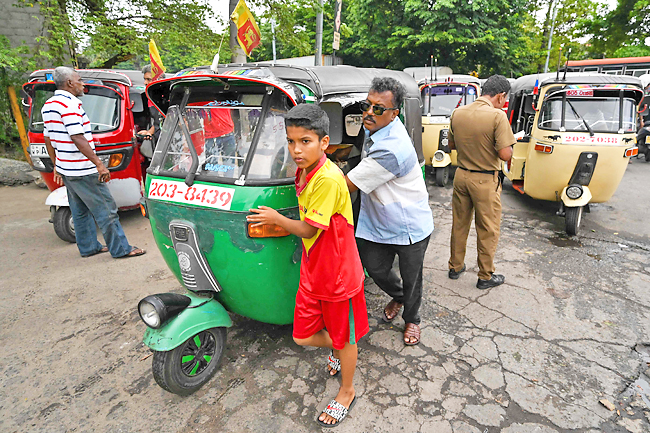COLOMBO, SRI LANKA (AP) – Sri Lankans who have endured months of fuel and food shortages are bracing for more pain as a newly installed government scrambles to find solutions to the Indian Ocean nation’s economic emergency.
Like many others, fish monger Gamini Mallawarachchi said he is pinning his hopes on President Ranil Wickremesinghe ‘s ability to revive the economy and restore stability after months of turmoil and protests.
“Things are really, really bad now and my life is almost ruined,” said Mallawarachchi, who has given up on selling fish because he can’t find fuel to get to the village where he used to buy it, and anyway his customers were buying less and less.
Mallawarachchi said he views Wickremesinghe his “last hope”.
“I think he will do something. With his experience and knowledge, I believe he has the capability,” said Mallawarachchi. “But, he must show some results before the end of this year, otherwise, he will also have to face protests from the people,” he said.
Sri Lanka inched closer to ending its dire economic and humanitarian crisis with the July 20 appointment of Wickremesinghe’s new government after months of protests and turmoil. But daunting hurdles lay ahead.
Lawmakers backed him in extending a national emergency that gives the president broad powers to crack down on any violence. That may buy him time to try to reach a deal with the International Monetary Fund (IMF) on a requested USD3 billion bailout.

By his own admission, that’s easier said than done.
On Saturday, Wickremesinghe said he has pushed back by a month his aim of getting an agreement by early August since talks with the IMF stalled amid recent political turmoil.
So far there are scant signs of progress in negotiations with Sri Lanka’s other creditors on more than USD50 billion that it owes to lenders.
“Because public debt is assessed as unsustainable,” the IMF’s approval would “require adequate financing assurances from Sri Lanka’s creditors that debt sustainability will be restored,” the lending agency said in a statement. That would require lenders, both public and private, to agree to accept smaller payouts on bonds, lower interest rates or extended repayment terms.
IMF conditions also would likely involve tax increases, better safeguards against corruption and other reforms such as privatising state-owned companies like the national airline.
The World Bank issued a statement last week expressing “deep concern” over Sri Lanka and saying it wouldn’t supply more funding, pending plans for “deep structural reforms” to address the causes of the crisis.
“He’s in a bind,” said Tamanna Salikuddin of the United States (US) Institute of Peace, an independent institute based in Washington, DC.
Austerity measures are a bitter pill to swallow for people who are going hungry and walking or biking to work because they cannot buy fuel. And raising taxes would likely undercut support from stalwarts in the ruling party who benefited from the tax cuts that helped deplete state coffers, she noted.
In June, Wickremesinghe, who was then prime minister for the sixth time, suggested a conference of major donors such as India, China and Japan. Sri Lanka, whose foreign exchange reserves are largely exhausted, is seeking “bridge financing” to be able to buy fuel and other essential supplies to keep the economy running.


